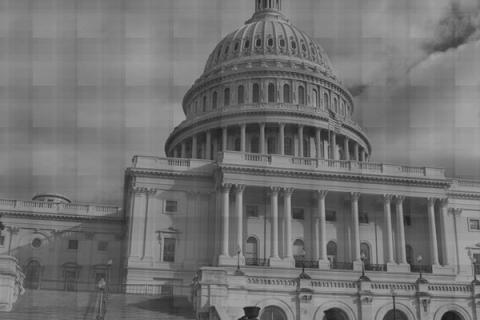As fellow contributor, Christopher Guzman, noted yesterday, 64% of Americans say big government is the "biggest threat to the country," just one percentage point less than the record high of 65% during 1999 and 2000, near the end of President Clinton's final term.
And the recent surge of Americans fearing and distrusting their government isn't just a Republican, right-wing, conservative, or Tea Party thing. Democrats actually led the increase of Americans who consider the government our country's biggest threat. As Gallup reports:
"Almost half of Democrats now say big government is the biggest threat to the nation, more than say so about big business, and far more than were concerned about big government in March 2009. The 32% of Democrats concerned about big government at that time -- shortly after President Obama took office -- was down significantly from a reading in 2006, when George W. Bush was president."
That the number of Democrats who fear big government has grown so significantly since March 2009, a time when the nation was presided over by a Democratic Administration, seems to speak volumes about the overreach of federal policies and radical consolidation of federal power under President Obama. Even his own party is growing anxious about the direction of our federal government, despite one of their own at the helm.
The trend might suggest a streak of libertarian and independent sentiment brewing in the party of Thomas Jefferson. It also tells us something else very interesting: Democrats might be resonating with Tea Party ideas more than with the ideas of Occupy Wall Street, which has focused on Big Business as the greatest threat to America, and proposed solutions that involve more federal regulation, oversight, and reform led by the "big government" that more and more Democrats have come to fear since 2009.
The poll results come at a time when Americans increasingly view the federal government as altogether illegitimate, with a poll three months ago in late August showing that only 17% of Americans believe the federal government has the consent of those it governs-- a principle on which the United States was founded. As I wrote at the time:
"The timing of this revelation, along with the sheer numbers themselves, tells the story of a deep, transpartisan discontent with the policies of the federal government. This isn’t about left or right, Democrat or Republican, union or Tea Party, and it isn’t a mere disagreement over policies either.It’s one thing to strongly, even vehemently disagree with a federal law or policy, but to say that the sum of federal policies as a whole are so egregious that the government itself is illegitimate, that it is governing without the consent of its people… these are the kind of claims that we’re hearing from the discontented peoples of the Arab Spring."
As long as political power to monitor, regulate, and control seemingly every aspect of American (and global) life from cradle to grave continues to centralize in the hands of the federal government, it will be more and more difficult for smaller voices to be heard. It takes the kind of advantages held by the wealthy, well-connected 1% to steer the policy of the Washington regime, so long as Washington continues to make more decisions about ever-widening areas of public policy. Big, well-established, wealthy, well-connected interests will call the shots, and they won't be calling the shots in favor of the 99%.
By contrast, de-federalizing many areas of public policy and returning that power to the people by taking it away from Washington and distributing it to local communities could make it much easier for small voices to be heard and much harder for large special interests to dictate to an entire nation in favor of their own agenda. Ultimately, I would argue that the real danger to our country doesn't come from big government or big business alone-- it comes from the cooperation of the two for their mutual benefit and at the cost of everyone else. This arrangement has been called many things from "corporatism" to "crony capitalism," but remember that this kind of economic system was a hallmark of what we have called "fascism" for decades.

